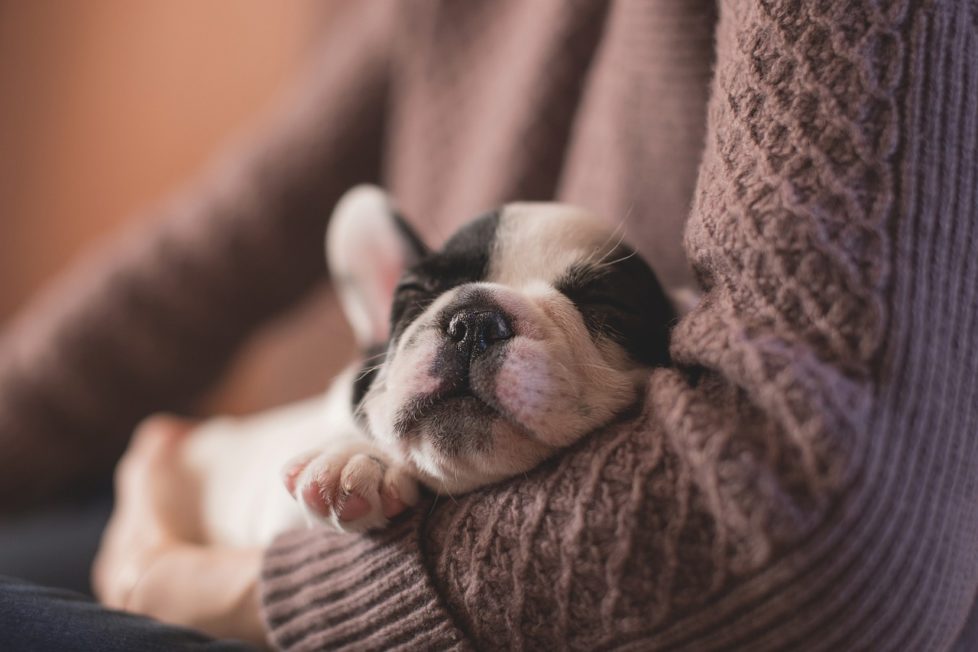How to Form a Better Relationship With Your Puppy


Congratulations on getting or adopting a new puppy! Raising a puppy entails taking on a lot of responsibility. However, there is more to the process than merely providing for the puppy’s basic needs.
Much like any relationship, developing a bond with your young canine requires some time and effort on your part. It will be challenging, but worth it in the long run.
Do you want to learn how to effectively connect with your little pooch? Experts on pet boarding and dog walking in Dubai share some advice for building a positive relationship with your new pet.
Each dog is unique. If you have several dogs, you know that each one has a distinct personality. Like people, they will react differently to the same situation or stimuli.
From the moment you take your dog home, observe his behavior. Make a mental note of what things can make your four-legged pal scared, anxious, or stressed, as well as happy and content. By knowing the signs, you are better able to determine when you should let your dog have fun, protect him from harm, or remove him from stressful situations.
Read books, watch DVDs, go online, or find other ways to learn more about canine behavior. Through understanding your dog’s behavior, your dog will learn to trust you more. In time, your relationship will develop and blossom.
Like any new relationship, the first few weeks spent with your new pup are reserved for you two getting to know each other. Use this time to try out as many things as you can with your puppy or new dog. The objective is to find out your dog’s specific likes and dislikes.
It may take a while before you discover what your pup likes in terms of food, treats, toys, tricks, games, or areas, among others. List down what you learned along the way in a notebook or pad. With the help of this list, you can determine what things you can do with your dog or give him, and which ones to avoid.
For instance, maybe your pup doesn’t like head pats but prefers stomach rubs. Or maybe Fido loves going on long walks instead of playing fetch. Every detail you learn can contribute to improving your relationship.
Physical contact does wonders for dogs as much as it does for people. Petting, grooming or any other activity that allows you to stroke your pet’s fur can effectively lower stress.
Studies show that any form of positive physical contact prevents the release of the stress hormone cortisol. At the same time, positive interactions show an increase of oxytocin, an anti-stress hormone, in the body. Your pup’s heart rate slows down, as a result, leading to a happier and more content companion.
Spend at least half an hour each day focused on your pup. This could be in the form of going for a walk around the park, bathing him, or teaching him to do tricks. The objective is to hang out with your furry pal one-on-one.
Strong relationships develop as you spend more time together and share experiences. So find ways to have fun with your canine to build a stronger bond.
Your pup is learning from every interaction with you. As such, be consistent with the messages you want to convey. Pay attention to what you say or do as you let your pup know about what behaviors are acceptable.
Contrary to popular belief, dogs learn faster through movement and visual signals rather than verbal commands. Use positive reinforcement as a way to train your dog. You can use treats, a clicker, or rewards, or praise good behavior.
Get the rest of the household involved when training your pooch. By enabling your family to participate, the same message is reinforced, regardless of who the dog is with at the time. Keep in mind, however, that specific training methods are not safe for kids to do until they reach a certain age.
Leash corrections and some forms of punishment, for instance, should not be used by kids as this could put them in danger. Instead, they can use treats to reward positive behavior. Under your watchful eye, your kids can learn how to safely train your pup and reinforce good behavior the same way you do.
Dogs and cats thrive on routines, so being unpredictable may sound like an odd suggestion. Yet studies show that changing things up can also be beneficial for your dog and your relationship. By introducing minor changes, your pup learns to trust and rely on you.
It could be as simple as taking a different route when you take your dog out for a walk, introducing a new game or toy, or trying a different treat flavor. Small changes can have a significant impact, so give them a shot and see how it affects your bond.
Relationships between pets and pet owners take time to build and develop. With these simple tips and some effort, you can develop a stronger bond with your pup.
